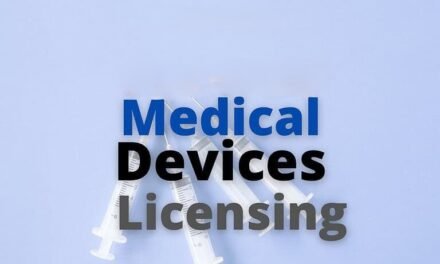
Encounter for health regulator private labs for quality testing in medical devices?

The role of private laboratories in the quality testing of medical devices is critical in ensuring the safety, effectiveness, and regulatory compliance of these devices in India. Over the years, regulatory bodies like the Central Drugs Standard Control Organization (CDSCO) have set up mechanisms to collaborate with both public and private laboratories for the testing of medical devices. Here’s an overview of the encounter between health regulators and private labs in the context of medical device testing:
1. Role of Private Labs in Medical Device Testing:
Accreditation: Private labs need to be accredited by national and international bodies to test medical devices. In India, they must meet the standards set by the National Accreditation Board for Testing and Calibration Laboratories (NABL) or other recognized international entities like ISO 17025.
Types of Testing:
Mechanical & Biocompatibility Testing: Ensuring devices like implants and surgical instruments are physically safe and biocompatible.
Sterility & Microbiological Testing: Assessing the sterility and microbial load on devices such as surgical tools and diagnostic kits.
Electrical & Functional Testing: Ensuring electrical devices like ECG machines and pacemakers are functioning properly and safely.
Packaging and Shelf-Life Testing: Ensuring medical device packaging protects the product’s sterility and integrity during transport and storage.
2. Interaction with Regulatory Bodies:
Collaboration with CDSCO:
The Central Drugs Standard Control Organization (CDSCO) plays a pivotal role in monitoring and regulating medical device quality. Private labs assist CDSCO by testing devices for compliance with standards before they are cleared for the market.
CDSCO conducts periodic audits and inspections of accredited private laboratories to ensure testing standards are met.
Pre-Market and Post-Market Testing:
Pre-market testing ensures that a device meets the required quality standards before entering the market. Private labs test medical devices for compliance with relevant Indian medical device rules and international norms (ISO, CE).
Post-market surveillance involves regular checks and quality assurance of devices already in the market. Private labs assist by performing random checks on products to ensure ongoing compliance.
3. Challenges Faced by Private Labs in Quality Testing:
Regulatory Compliance:
Meeting national and international standards like ISO 13485 and FDA approvals for testing procedures can be expensive and complex for private labs, especially in India.
Capacity Building:
While the number of accredited private labs is increasing, India still faces a shortage of specialized testing facilities for specific high-tech devices, such as robotic surgery tools or advanced imaging equipment.
Timeliness:
Delays in the testing process, either due to resource constraints or the complexity of devices, can result in delays in getting devices to market, affecting both manufacturers and consumers.
Cost of Testing:
Testing services in private labs can be costly, particularly for smaller manufacturers who may not have the financial resources for frequent or comprehensive testing.
4. Quality Assurance Framework:
Private Lab Accreditation:
The National Accreditation Board for Testing and Calibration Laboratories (NABL) is the primary body in India responsible for accrediting private labs. NABL ensures labs comply with stringent standards of quality and competence.
International Standards Compliance:
Many private labs in India adhere to ISO 17025 (general requirements for the competence of testing and calibration laboratories), which is globally recognized for ensuring high-quality testing practices.
CDSCO Guidelines for Testing:
CDSCO mandates specific quality testing procedures for medical devices under the Medical Devices Rules, 2017. These guidelines are referenced by private labs for conducting tests on medical devices.
5. Importance of Private Labs in Global Expansion:
Certification for Exports:
Indian manufacturers who wish to export medical devices to global markets (such as the European Union or U.S. FDA) require testing certifications from accredited labs. Private labs play a critical role in testing devices to meet the quality requirements of these international markets.
Collaboration with International Laboratories:
Private labs in India often collaborate with global regulatory bodies and laboratories to ensure their testing methods are aligned with global standards, facilitating exports.
6. Innovations in Medical Device Testing:
AI and Automation in Testing:
Some private labs are integrating AI-based systems and automated testing machines for more efficient and accurate quality testing of medical devices.
Biomaterials and 3D Printing:
Private labs are increasingly adopting biomaterial testing methods, especially for implants and prosthetics. 3D printing is also being explored in labs for developing customized devices, and this requires testing for biocompatibility and mechanical integrity.
Blockchain for Data Integrity:
The use of blockchain technology for data security and integrity in medical device testing records is becoming more popular to ensure the transparency and traceability of tests.
7. Recent Developments and Initiatives:
CDSCO’s Initiative to Approve More Testing Labs:
In recent years, the CDSCO has been working to expand the number of authorized testing labs for medical devices in India, increasing collaboration with both private and public laboratories.
This expansion aims to improve the speed and scope of testing, ensuring that medical devices meet quality standards before being marketed or exported.
8. Benefits of Collaborative Efforts:
Efficient Regulatory Compliance:
Through collaboration between private labs and regulatory authorities like CDSCO, India is improving the regulatory landscape and facilitating smoother market access for manufacturers.
Boost to Indian MedTech Exports:
By meeting international testing standards, Indian manufacturers can export their devices to global markets, enhancing India’s role in the global medical device supply chain.
Innovation and Market Leadership:
Collaborations with private labs lead to more innovative testing methods, improving product quality and safety while maintaining cost-effectiveness, a significant advantage for Indian manufacturers.
Private laboratories are crucial in ensuring the quality, safety, and compliance of medical devices in India. Their role in quality testing, especially with collaboration from regulatory bodies like CDSCO, is helping Indian medical device manufacturers meet both national and international standards. Although challenges like regulatory compliance, costs, and infrastructure gaps remain, private labs are increasingly contributing to India’s global competitiveness in the medical device sector.




























